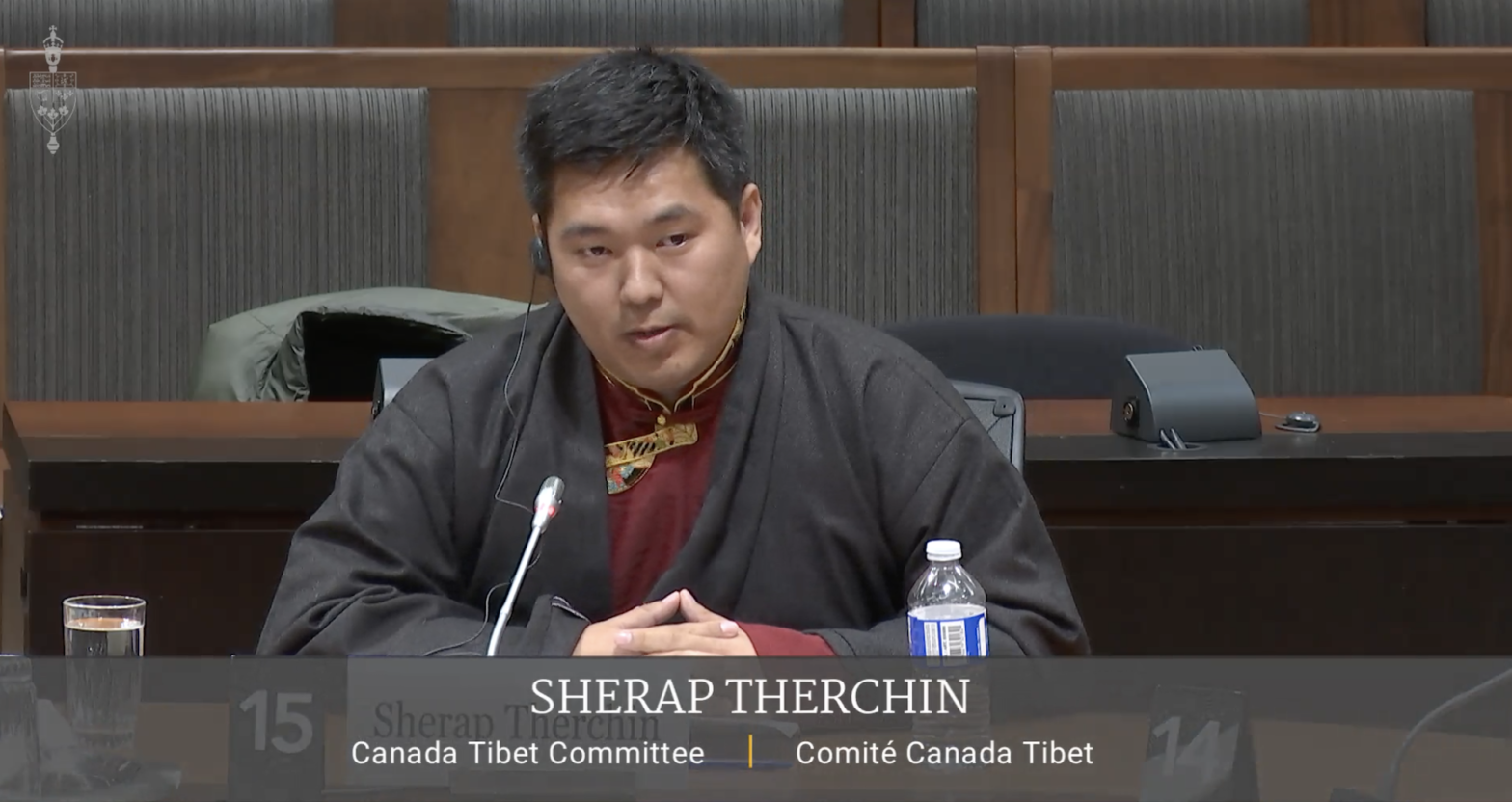Ottawa, April 21, 2023 – The Foreign Affairs’ Subcommittee on International Human Rights convened its second session today, examining the Chinese government’s practices in Tibetan residential boarding schools and preschools. Witnesses included Sherap Therchin, Director of the Canada Tibet Committee (CTC); Zeekyab Rinpoche from Tashi Lhunpo monastery; Tenzin Dorjee from Tibet Action Institute; and Tenzin Choekyi from Tibet Watch.
CTC Director Sherap Therchin emphasized the significance of Tibetan language and education, rights secured under international law, yet violated by Chinese policies. Analogizing Canada’s Indigenous Languages Act and Quebec’s use of French in education, Therchin posited Canada’s capacity to impact this issue. Therchin proposed recommendations to the committee, including fostering dialogue on minority languages in Tibet, showcasing Canadian language protection methods to Chinese parliamentarians, supporting research on Chinese policies’ impact on Tibetan culture and language, promoting Tibetan language education projects through the Canadian embassy in Beijing, and advocating for Tibetan human rights defenders.
The witness testimony prompted questions from committee members. MP Anita Vandenbeld voiced concerns over the possible eradication of Tibetan language and culture and suggested expanding Canada’s annual allocation of 250 spots for human rights defenders to include more Tibetans. In response to Vandenbeld, Therchin pushed for the inclusion of Tibetan human rights defenders, citing the case of Tashi Wangchuk, a Tibetan language advocate imprisoned after promoting the Tibetan language to a New York Times reporter.
Tenzin Dorjee from the Tibet Action Institute drew comparisons between North American indigenous communities’ historical oppression via residential schools and the current Chinese practices towards Tibetan children. According to Dorjee’s research, around 800,000 Tibetan students (78% aged 6-18) are placed in state-run boarding schools. These institutions employ a politicized curriculum that attempts to supplant Tibetan identity with a Chinese one. Dorjee condemned China’s policy of supplanting Tibetan with Mandarin in these schools, identifying it as a mechanism for cultural obliteration.
Tenzin Choekyi from Tibet Watch outlined the fear and surveillance Tibetans endure under the Chinese government. Choekyi highlighted the systematic marginalization of the Tibetan language in state-run boarding schools, where Mandarin dominates and Tibetan is optional. This, along with the eradication or transformation of Tibetan-run educational initiatives, is perceived as a cultural erasure strategy. She further noted state policies that displace Tibetan nomads, disrupting traditional livelihoods and transmission of ancestral knowledge, thereby deepening cultural assimilation.
Official transcript of the meeting: https://www.ourcommons.ca/DocumentViewer/en/44-1/SDIR/meeting-28/evidence
Full video of the testimony: https://youtu.be/E16eDRRNIiM
By Sherap Therchin

